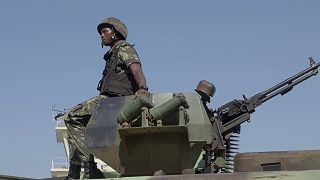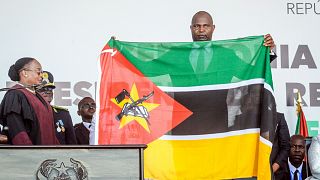Mozambique
At least seven people have been killed, four of them beheaded, in recent jihadist attacks in northeastern Mozambique, violence that is now affecting areas previously relatively untouched and causing massive new displacement.
According to the UN and the NGO Save the Children on Tuesday, 10,000 people have fled their homes in the past week. The country has been plagued since 2017 by jihadist violence that has already killed nearly 4,000 people, according to the NGO Acled, and forced about 800,000 people to flee.
The armed groups had been operating mainly in the far northeast of the poor but resource-rich Cabo Delgado province, near the border with Tanzania.
But in early June, a series of attacks took place further south, in the Ancuabe district, 45 km from the port city of Pemba, the province's capital. An area considered "safe" until now, notes Save the Children.
"At least four people were beheaded in these recent attacks, a first in the district," the NGO said in a statement. Residents of the surrounding villages who fled described beheadings, rapes, house burnings and abductions, the NGO said.
In front of a truck filled to the brim, Amido Pereira told AFP that he left with his family: "I saw a woman holding her husband's head in her hands. When we saw that, everyone ran away.
On the roadside, groups of men and women, some with children hanging on their backs, loaded with packages, were heading on foot to Pemba, an AFP photographer noted.
Mine
In another attack last week, two security guards working at a mine in the same district were killed.
"On June 8, our Ancuabe site was targeted by an attack," mining company Triton Minerals said in a statement Tuesday. "Two security officers/guards were fatally injured." The Australian company mines graphite in the area.
According to diplomatic and humanitarian sources, travel has been restricted since the beginning of the month, due to an increase in violence. After a major attack last year, however, the violence had decreased in intensity, partly due to the deployment of regional military forces.
A deadly attack on the port city of Palma in March 2021 forced the French energy giant TotalEnergies to suspend a 16.5 billion euro natural gas project just a few kilometers away.
Since July, Rwanda and neighboring southern African countries have deployed more than 3,100 troops to support the struggling Mozambican army. However, inland jihadist groups have continued to carry out sporadic attacks, adopting more traditional guerrilla tactics.
Regional forces (Samim) said in a statement Monday that they had killed "several terrorists" in an operation. The military lost one man and six were wounded.
Mozambique regularly tries to reassure its investors about the progress in the fight against jihadists. The discovery in 2010 of the largest natural gas reserves in sub-Saharan Africa had led the government to expect billions in annual revenues from gas projects, a windfall for the country, whose GDP is about 13 billion euros. Most of these projects are now on hold.
The violence has also caused a humanitarian crisis among the displaced population. The United States announced on Tuesday during a visit to Mozambique by the number three diplomat, Victoria Nuland, 28.3 million euros in aid through the World Food Program (WFP).












01:49
Sudanese refugees in Chad face deepening humanitarian crisis
01:52
UN's crucial humanitarian aid work faces a clouded future amid cuts in funds
01:09
Wars displace over 122 million people as global aid dwindles – UNHCR
01:11
'Devastating milestone': More than 4 million people have fled Sudan since start of civil war
Go to video
DRC: M23 rebels expel civilians to Rwanda
Go to video
New wave of Sudanese refugees flee into neighbouring Chad